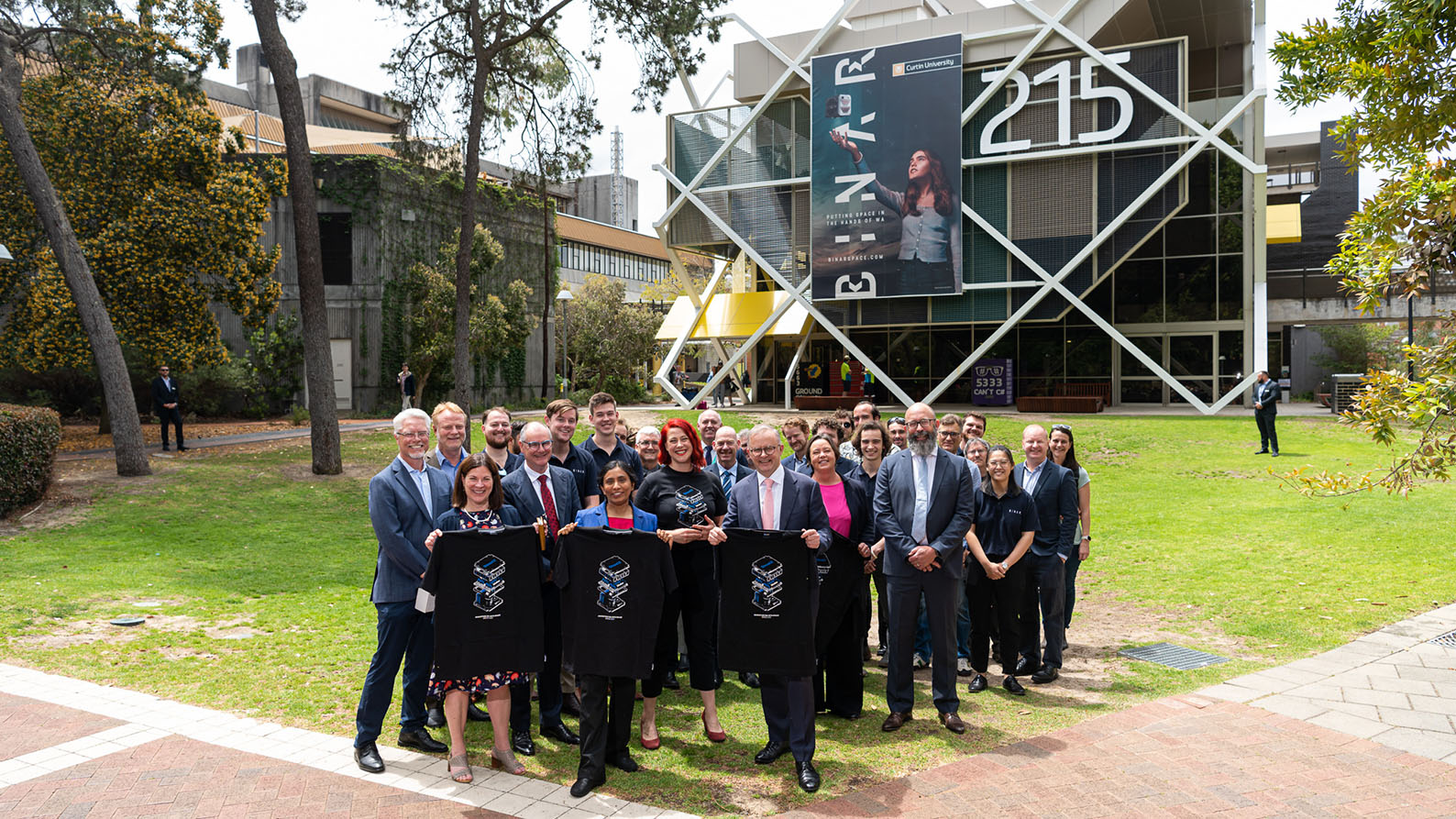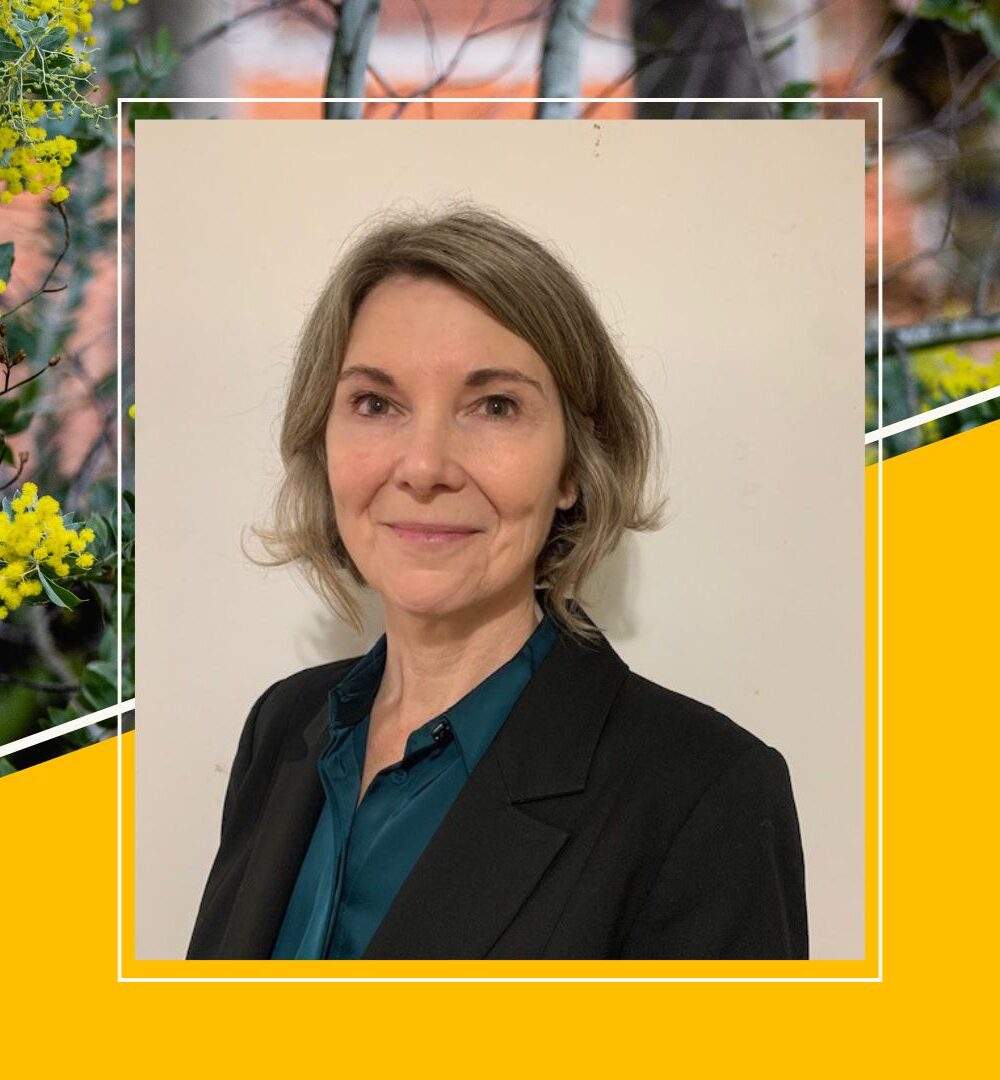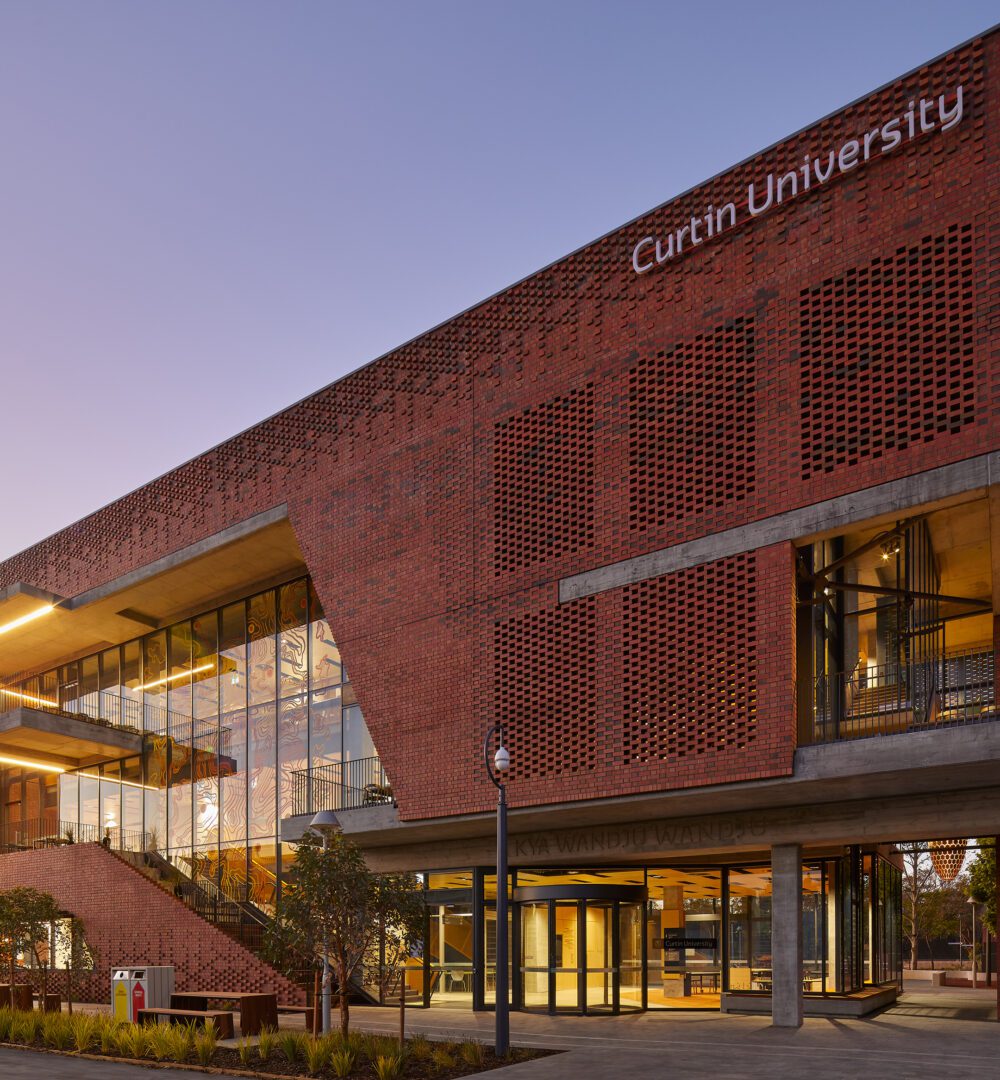Prime Minister sees leading role for Curtin University

Prime Minister Anthony Albanese visited Curtin University today to announce the Federal Government’s new initiatives to accelerate the growth of the critical mineral sector and support clean energy technologies.
Accompanied on his visit by Minister for Resources and Northern Australia, the Hon. Madeleine King MP and the Member for Swan, Zaneta Mascarenhas MP, Mr Albanese met researchers from Curtin’s Space Science and Technology Centre, the Curtin Institute of Radio Astronomy and the Resources Technology and Critical Minerals Trailblazer hub for an overview of innovative projects, new discoveries in space exploration and radio astronomy, and direct tangible impacts for industry and communities.
Mr Albanese thanked the researchers and staff at Curtin University for sharing their knowledge, their innovation, and what he said were exciting opportunities for Australia.
“Here in the west, there are advantages in the ground, in terms of minerals and access to them, advantages in the sky with the best solar resources in the world, however the greatest advantages are the people standing here with us today, the human resources that are here in the West,” the Prime Minister said.
“The vision of this university is one that sees Western Australia in particular in a position to diversify its economy and take advantage of exciting opportunities in the areas of space exploration and the transformation of our global economy toward a clean energy economy.
“The important role critical minerals will play in that transformation will see Australia become a renewable energy superpower for the world.”
Curtin University Vice-Chancellor Professor Harlene Hayne said it was an honour to have Mr Albanese, Ms King and Ms Mascarenhas visit the campus.
“It was an exciting opportunity for us to showcase some of the exceptional, world-leading research underway here at Curtin,” Professor Hayne said.
“As the Prime Minister said, Curtin University has a leading role to play in helping Australia become a smarter and more innovative country, that leads the world not just in research but in making the most of the commercial opportunities that come from that research”.



